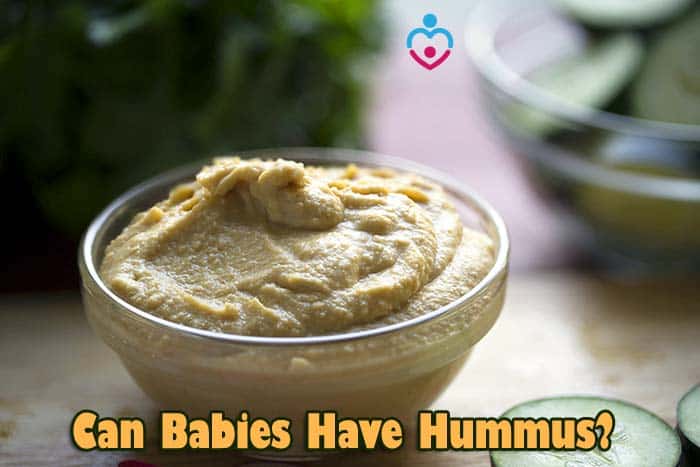
As a new mom, you might wonder about adding some diversity to your baby's meals. If fruits and veggies are a good start after the breastfeeding phase, what about more complex dishes such as hummus.
Hummus contains chickpeas and tahini paste primarily, but it can also contain ingredients such as lemon and, of course, seasonings like salt and pepper according to the recipe you use.
While hummus is considered a very nutritious dish, you will most likely wonder if it is such a right choice for babies. Can babies have hummus? or Can babies eat chickpeas? Read on.
Jump to:
Can babies have hummus?
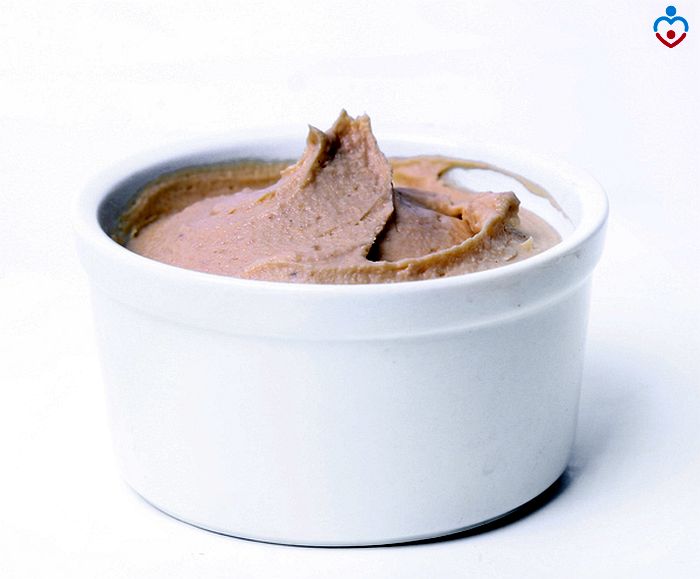
The short answer is that you can add hummus to your baby's diet, starting six to eight months. But you will have to alter the recipe a bit.
- Your baby's hummus shouldn't contain anything but blended chickpeas and olive oil.
- When you prepare the hummus for your baby, you should keep it simple and skip adding salt, pepper, tahini paste, or lemon juice.
- This is because your baby's digestive system will be in constant development at this stage. It might not be ready for all the ingredients in a regular hummus recipe.
Can babies have tahini?
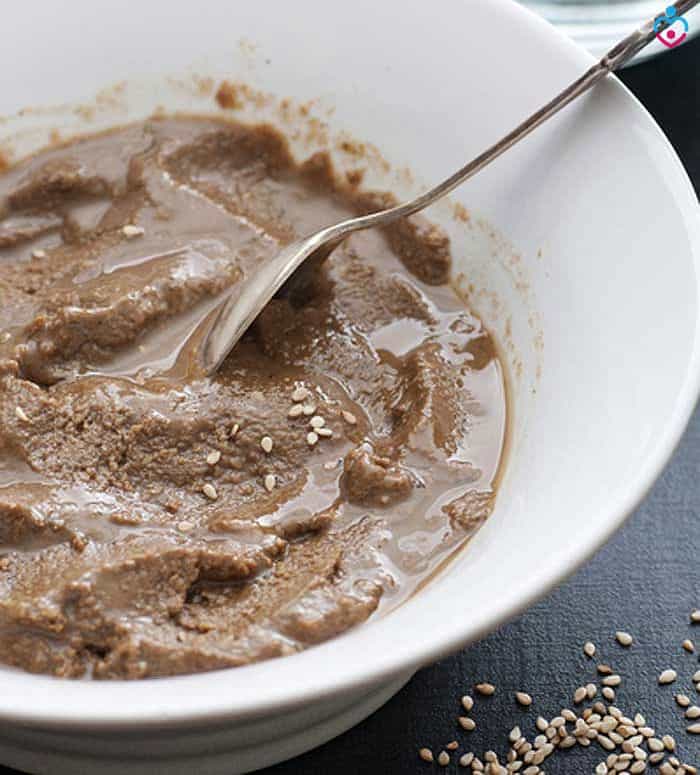
Tahini is essentially a paste of sesame seeds. While sesame seeds are considered safe for most babies, there are also allergy cases starting with six months.
- You will notice that your baby is allergic to sesame seeds if they develop any skin eczema or other type of skin reactions such as a rash or irritation.
- Suppose you notice such a side effect after giving your baby sesame seeds in any form, being it plain or in a tahini paste, you should avoid giving it to them any more.
However, suppose there is no skin reaction for four days after eating sesame seeds. In that case, your baby is not at risk for allergy. Therefore they can eat products containing sesame seeds such as tahini.
A severe complication of sesame seeds allergy is anaphylaxis crisis. This is rare in babies, but if it does happen, you should know that taking your little one to the hospital as soon as possible is crucial for their life. The signs of such a condition are severe skin rash, difficulty breathing, and lethargy.
Suggested Reading:
Can babies eat chickpeas?
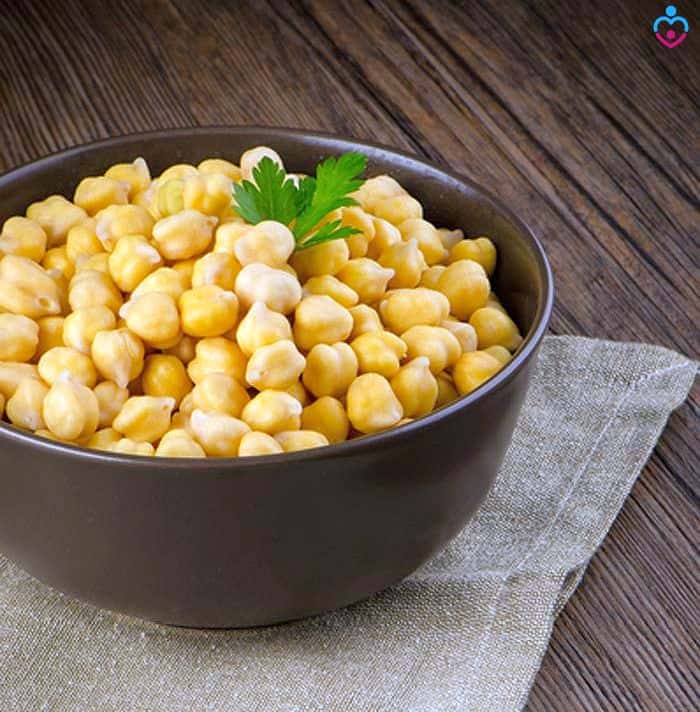
Chickpeas are very healthy, not just for adults but also for children and babies.
- You can add chickpeas to your little one's diet starting with six months of age, but it is essential not to give them whole chickpeas because they can be a choking hazard.
- But there is no need to worry as there are many ways to prepare chickpeas safely so that your baby can enjoy them to their best qualities.
- You can use chickpeas in hummus as long as you skin the other spices or use it as a chickpeas flour in different recipes.
- You can even add some chickpeas to different vegetable purees to enrich your baby's meal with iron and protein.
Suggested Reading:
Beetroot hummus for babies
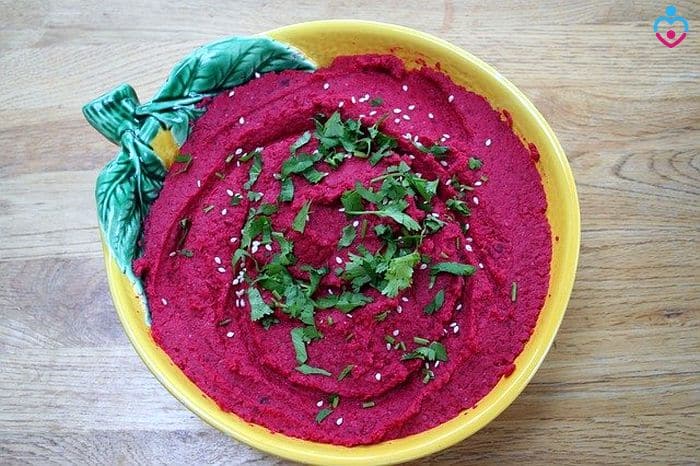
A great dish for babies who are starting to enjoy solid foods is beetroot hummus. If you want to add some taste and nutrition to your basic hummus recipe, beetroot might do the trick.
- All you have to do is peel the beetroot and portion it into small cubes.
- Soak the beetroot in olive oil and roast it for about 45 to 50 minutes.
- When the beetroot is soft enough, add it to the blender along with your chickpeas, and you will obtain a healthy pink hummus that your baby will love.
Suggested Reading:
Store-bought hummus or homemade hummus for babies?
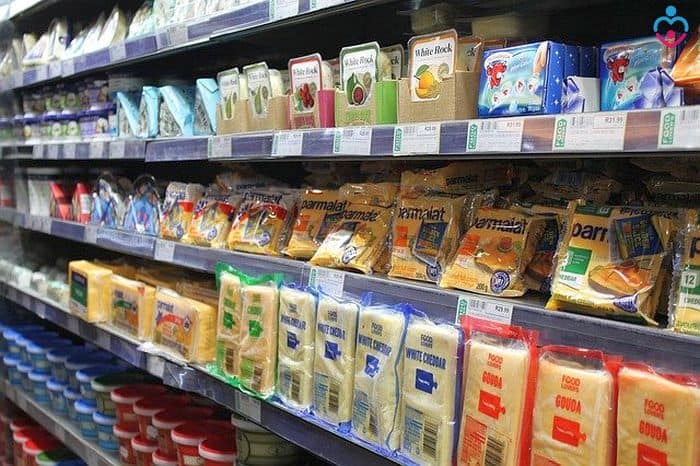
When it comes to the type of hummus you give your baby, it is always best to choose the homemade recipe.
- This way, you have complete control over the hummus ingredients, and you can skip all the harmful ones. It is also effortless to prepare it as it only takes a few minutes.
- Store-bought hummus contains spices and ingredients that are not healthy for your baby and preservatives and certain emulsifiers to make it taste better.
- You want to keep your little one away from all the chemicals that might affect their health. However, you can better your hummus recipe to enhance the taste after they turn one year old.
Suggested Reading:
Baby hummus recipe without tahini
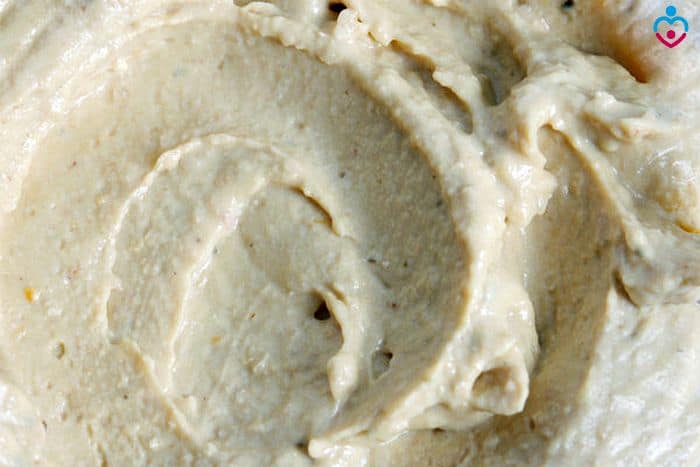
As we mentioned, there is a risk of your baby developing a sesame allergy. If you don't want to take the chance, you might want to avoid tahini altogether.
- Hummus recipe without tahini is actually straightforward, and it shouldn't take more than a few minutes.
- Boil the chickpeas until they are soft enough to blend them into a puree. You might want to save some of the water you boiled them in because you will use it in the blending process.
- Once the chickpeas are boiled, add them to your blender along with one or two tablespoons of olive oil.
- You will add water as you feel it is needed to obtain the consistency you want.
- Allow the hummus to cool down and serve it plain to your baby.
As far as quantities go, you shouldn't need more than 100 grams of chickpeas for a portion of hummus for your baby.
However, if you want to have leftovers, feel free to increase the quantity to 200 and even 250 or 300 grams. You can store the hummus in the fridge for up to 3 days, and you can also freeze it if you want for future meals.
Top 5 hummus ideas for toddlers
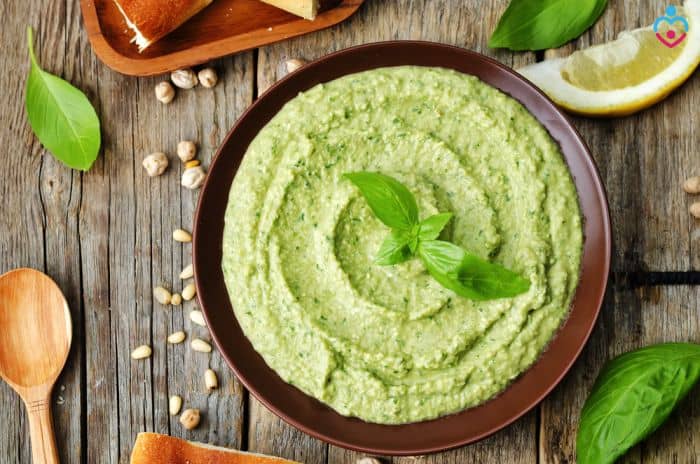
Some babies might not be so thrilled about the taste of plain hummus. In this case, you will have to get creative if you still want your little one to enjoy the nutrition that comes along with this dish.
Here are 5 ideas that will help you introduce hummus to your baby's diet, even if you have a picky eater!
1. Spinach hummus
Boil some spinach and add it to the hummus. This will enhance its taste and increase iron concentration. Plus, your baby might be attracted by the vibrant green color. If you plan to feed this dish to a baby between six and eight months old, make sure to blend the spinach and the hummus until you obtain a creamy puree.
2. Beetroot hummus
The beetroot hummus recipe we talked about above is one of the best to try if your baby refuses to eat plain hummus. It might take longer to prepare it, considering that you have to roast the beetroot. Still, the taste will be highly appreciated by your baby.
3. Grilled pepper hummus
Pepper is another vegetable that your baby should learn to love. It is rich in vitamin A and vitamin C and potassium, and other nutrients. All you have to do is grill the peppers and peel them once they get cool. Add them to the blender along with your hummus, and you will obtain a red, delicious hummus alternative.
4. Carrot hummus
You can also add some boiled carrots to your hummus, and your baby will love the new sweet taste. Since carrots are sweet and nutritious, you will obtain a great new recipe that your baby might appreciate more than the plain hummus.
5. Garlic hummus
Once your baby turns one year old, you can diversify their hummus recipe with garlic and even lemon ingredients. If they like garlic, they will enjoy the new hummus flavor. Considering that garlic is rich in antioxidants, you will be happy to offer them a healthy meal.
Suggested Reading:
Hummus is rich in nutrients such as iron, fiber, potassium, and protein. It also contains manganese and folate, as well as carbs. So, your baby will get many benefits from eating hummus as long as you prepare it the right way for their age.
Stay away from the tahini paste, though, as you don't want to risk any sesame allergy. But if you want to try to give your baby tahini, considering the sesame allergy is rare in babies, be aware of the symptoms so you can take action right away should you notice any reactions.
![]()
Key References
- "Sesame Allergy: The Facts". Accessed October 17, 2020. Link.




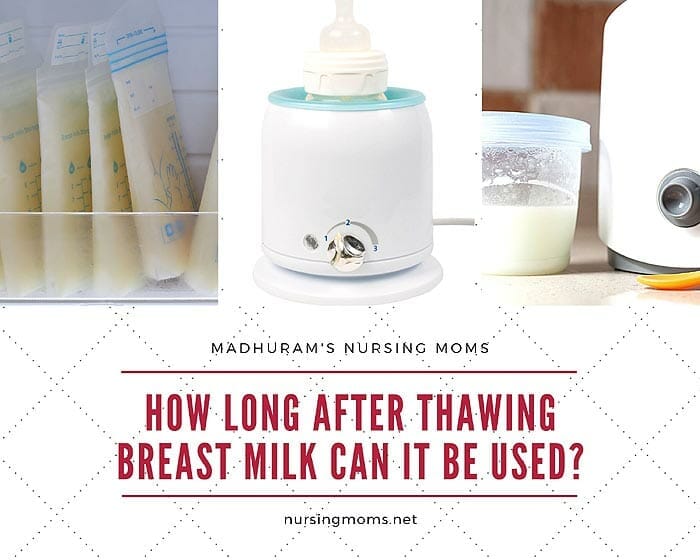
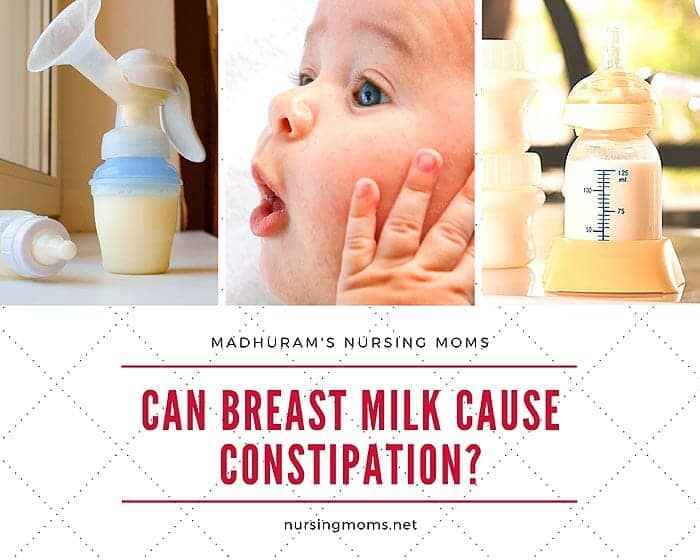

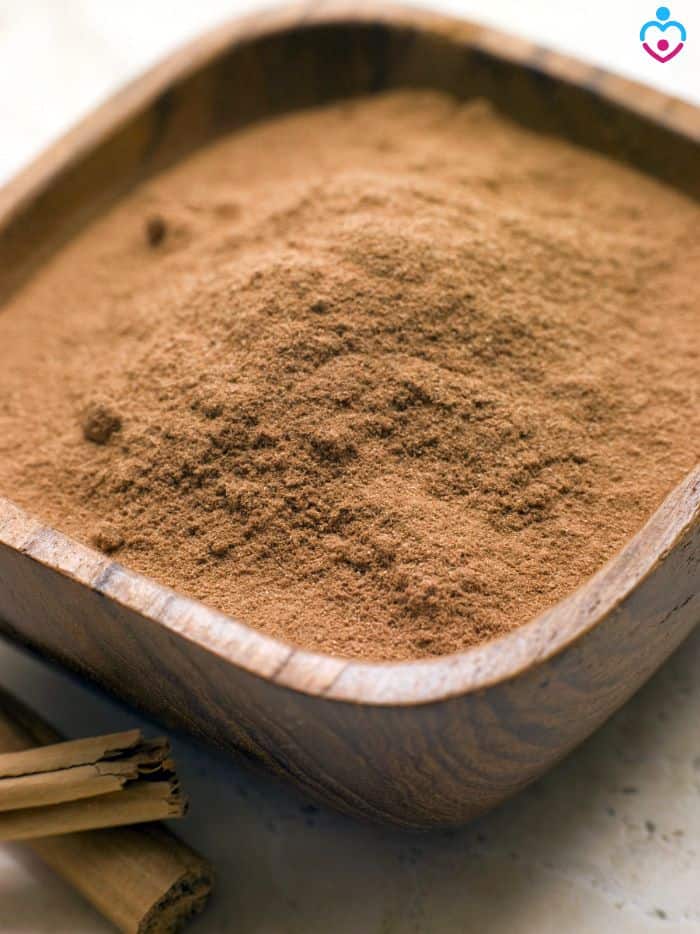
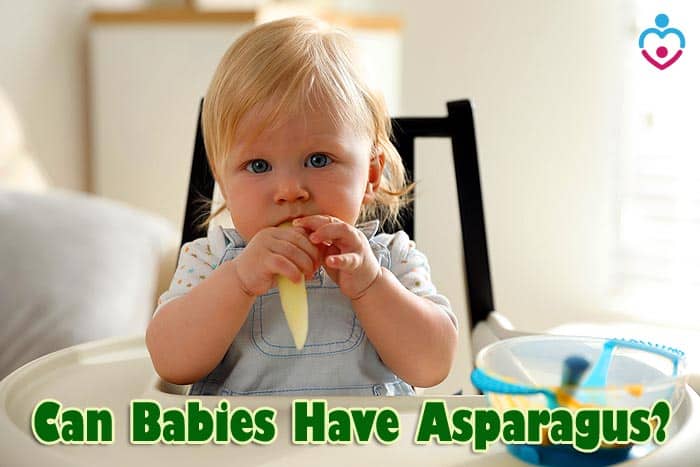
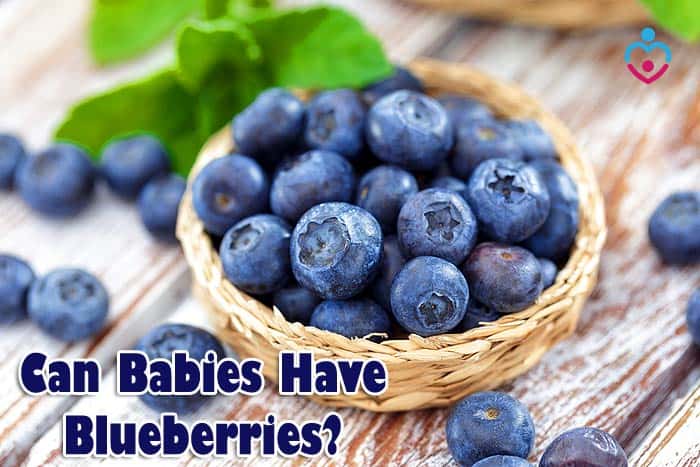
Leave a Reply